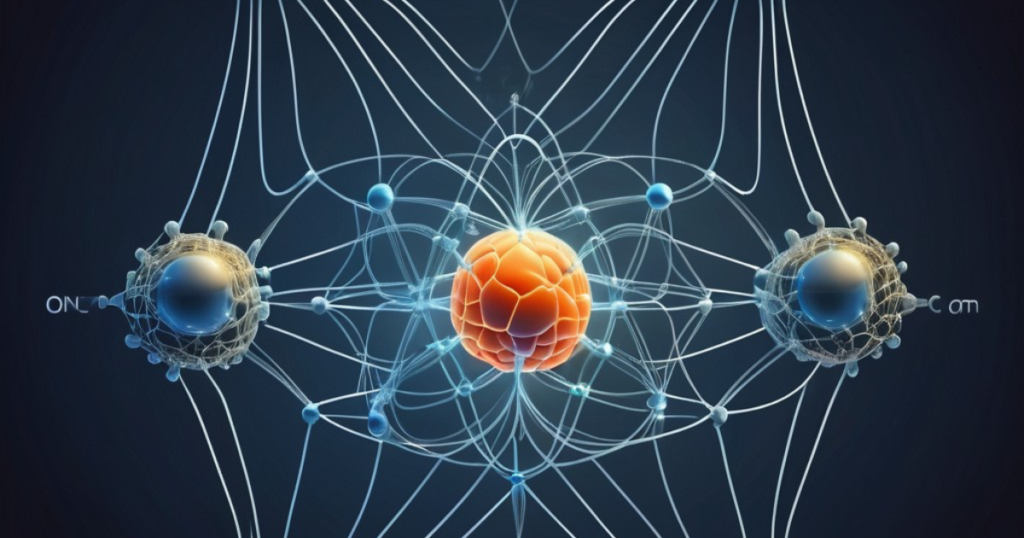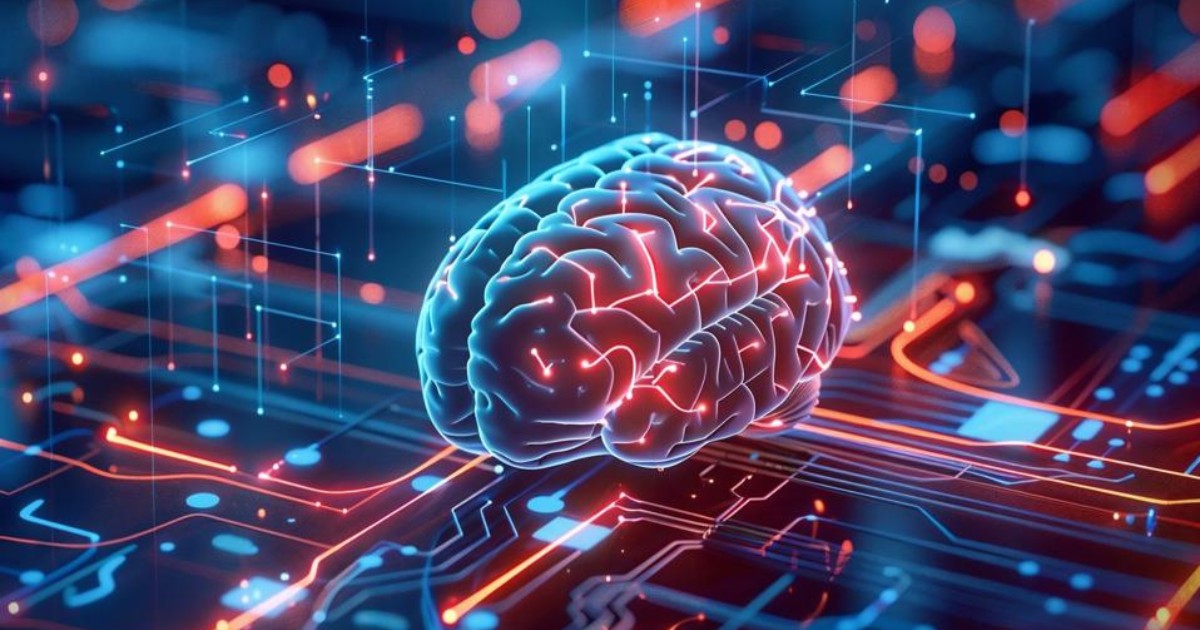Quantum computing is an emerging technology that has the potential to revolutionize multiple industries, with artificial intelligence (AI) being one of the most significant beneficiaries. Traditional computing relies on binary bits (0s and 1s) to process data, whereas quantum computing leverages quantum bits (qubits), which can exist in multiple states simultaneously. This quantum advantage allows for exponential processing power, enabling AI systems to solve complex problems more efficiently. This article explores how quantum computing is transforming AI, its applications, benefits, challenges, and future prospects.
Understanding Quantum Computing and Artificial Intelligence
1. What is Quantum Computing?
Quantum computing is a field of computing that utilizes principles from quantum mechanics to perform computations at an unprecedented speed. Unlike classical computers that use bits, quantum computers use qubits, which take advantage of superposition and entanglement to process complex data faster.
2. How AI and Quantum Computing Work Together
AI involves algorithms and models that process and analyze vast amounts of data to make predictions, recognize patterns, and automate decision-making. Quantum computing accelerates AI tasks by optimizing calculations, handling high-dimensional data, and improving machine learning models.
Key Ways Quantum Computing is Transforming AI
1. Faster Machine Learning Model Training
Training AI models on classical computers requires significant time and computational resources. Quantum computing speeds up this process by performing parallel computations, allowing AI systems to train faster and improve real-time decision-making.
2. Optimization and Complex Problem Solving
Quantum computing enhances optimization algorithms, which are crucial in AI-driven fields such as logistics, finance, and healthcare. Quantum AI can analyze multiple solutions simultaneously and determine the most efficient outcome.
3. Enhanced Natural Language Processing (NLP)
Natural Language Processing (NLP) relies on deep learning models to understand human language. Quantum computing enables NLP models to process large text corpora faster, improving AI’s ability to generate, translate, and comprehend language more accurately.
4. Advanced Pattern Recognition
Quantum computing enhances AI’s pattern recognition capabilities by processing massive datasets simultaneously. This advancement benefits industries such as cybersecurity, healthcare, and autonomous systems by identifying anomalies and making precise predictions.
5. Drug Discovery and Molecular Modeling
Quantum AI accelerates drug discovery by simulating molecular interactions at a quantum level. This technology helps pharmaceutical companies develop new drugs faster and improve precision medicine.
6. AI in Quantum Neural Networks

Quantum computing enables the development of quantum neural networks (QNNs), which outperform classical neural networks in processing speed and efficiency. These networks improve AI applications in image recognition, speech synthesis, and scientific research.
7. Quantum Data Security and AI-driven Cybersecurity
Quantum computing enhances AI-powered cybersecurity by strengthening encryption techniques and detecting cyber threats in real time. Quantum cryptography ensures secure data transmission, reducing the risk of cyberattacks.
Benefits of Quantum Computing in AI
1. Unparalleled Processing Power
Quantum computing performs calculations exponentially faster than classical computers, enabling AI to solve complex problems more efficiently.
2. Improved AI Model Accuracy
Quantum AI enhances the accuracy of machine learning models by reducing errors and improving predictive analysis.
3. Efficient Big Data Analysis
Quantum computing enables AI to process massive datasets simultaneously, improving real-time analytics and decision-making.
4. Reduced Energy Consumption
Quantum processors consume less energy compared to classical supercomputers, making AI computations more sustainable.
5. Breakthroughs in Scientific Research
Quantum AI accelerates discoveries in various scientific fields, including chemistry, physics, and biology, by simulating complex quantum systems.
Challenges of Quantum Computing in AI
1. Hardware Limitations
Quantum computers are still in their early stages of development and require extremely low temperatures to function, making them expensive and difficult to scale.
2. Algorithm Development Complexity
Quantum algorithms are fundamentally different from classical algorithms, requiring new approaches and specialized expertise to integrate with AI models.
3. Quantum Error Rates
Quantum computing is susceptible to errors due to environmental interference and qubit instability, affecting AI model reliability.
4. Security Risks

While quantum computing enhances encryption, it also poses a threat to current cryptographic systems, requiring the development of quantum-resistant security measures.
5. Limited Commercial Availability
Quantum computers are currently available only to a few research institutions and tech giants, limiting access for widespread AI applications.
Future of Quantum Computing in AI
The future of quantum computing in AI is promising, with continued advancements expected in the following areas:
- Development of Scalable Quantum Hardware: Researchers are working on creating stable and scalable quantum processors for broader AI adoption.
- Quantum-AI Hybrid Systems: Future AI models may integrate classical and quantum computing to optimize performance and efficiency.
- Quantum-Inspired Algorithms: Even before full-scale quantum computing is realized, quantum-inspired techniques will enhance AI capabilities.
- Breakthroughs in Quantum Cryptography: The rise of quantum-secure communication methods will reshape AI-driven cybersecurity solutions.
- Commercialization and Accessibility: As quantum technology advances, businesses will gain access to quantum-powered AI applications, revolutionizing industries.
Also Read: How Cloud Computing Is Transforming Data Storage And Security?
Conclusion
Quantum computing is set to revolutionize artificial intelligence by accelerating machine learning, optimizing complex problem-solving, enhancing pattern recognition, and improving data security. While challenges such as hardware limitations and algorithm complexity exist, ongoing research and technological advancements will unlock new possibilities for AI-powered quantum computing. As this transformative technology evolves, it will reshape industries and drive innovation in ways that were once unimaginable.
FAQs
1. How does quantum computing improve AI?
Quantum computing enhances AI by accelerating machine learning training, optimizing complex problems, improving pattern recognition, and increasing data processing efficiency.
2. Will quantum computing replace classical AI?
No, quantum computing will not replace classical AI but will complement it by solving problems that are computationally infeasible for classical computers.
3. What industries will benefit the most from quantum AI?
Industries such as healthcare, finance, logistics, cybersecurity, and scientific research will benefit the most from quantum AI applications.
4. When will quantum computing be widely available for AI applications?
Quantum computing is still in its early stages, but advancements in hardware and software development may make it commercially viable within the next decade.
5. What are quantum neural networks (QNNs)?
Quantum neural networks (QNNs) are AI models that leverage quantum computing principles to improve processing speed, efficiency, and accuracy in neural network-based applications.

